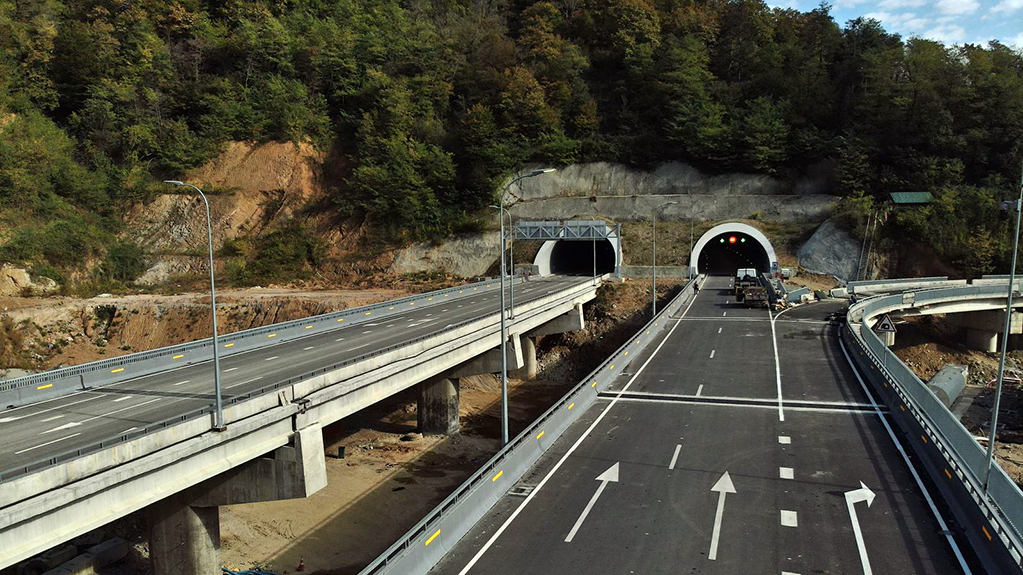A 27 km section of the Rikoti expressway has been opened to traffic. The new, four-lane section of the main road begins near Khevi village of Kharagauli municipality and ends near Shorapani township of Zestafoni municipality. The khevi-Shorapani section includes 65 bridges and 38 tunnels. The new section reduces the travel distance to Rikoti by 8 kilometers and the travel time by 25 minutes.
News
Khevi-Shorapani section includes the longest bridge in Georgia – 1362 meters long, and the section’s longest tunnel spans 1640 meters.
According to Prime Minister Irakli Gharibashvili, the Rikoti highway will be 52 km in total, and 97 bridges and 51 tunnels are under construction.
‘‘As of today, 48 tunnels have already been drilled and 83 bridges built. This is the largest project. Our country has never seen a project of such scale and complexity. Works are actively underway on the remaining sections and according to our plan, the Rikoti section will fully open by the end of 2024’’, said the Prime Minister.
The Rikoti Road is being built with the support of the European Investment Bank (EIB), the World Bank (WB), and the Asian Development Bank (ADB). The total cost of construction is up to 2,6 billion GEL.
Within the project, special spaces will be accommodated, so-called shopping areas, where the local population will be able to sell their products in proper infrastructure and road safety conditions.
According to the Government Administration, well-known American, Italian, Turkish, and Georgian companies worked on the design of the Rikoti highway. The construction works are carried out by 4 different Chinese companies that won the open contract, and the works are supervised by international companies from France, Turkey, Australia, and Korea.















